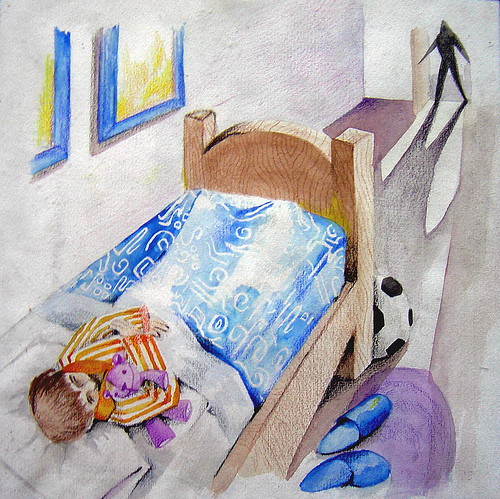
Adults between the age of 18 and 60 should aim for seven hours of sleep each night. However, one in three adults doesn’t get enough sleep — something as critical to well-being as a healthy diet and regular exercise.
Poor sleep habits can lead to increased risk of obesity, diabetes and high blood pressure. If you find yourself struggling to receive a good night’s sleep, consider the following seven tips to start a healthier bedtime routine.
1. Create a Cozy Environment
You spend eight hours each night laying in bed. That accumulates to 24 years in your lifetime.
You should see your room as an investment, one deserving of serious consideration.
Start by settling on a soothing color scheme you won’t mind looking at each night.
Then move onto choosing a mattress that aligns with your comfort levels and shop around because many mattresses fall in an affordable price range nowadays.
Add in pillows and linens soft to the touch to complete your cozy vibe.
2. Cut the Caffeine
Caffeine, found in drinks such as coffee and sodas, can be hard to avoid at times. If your sleep suffers, one trick involves cutting down on the amount of caffeine you consume, especially at night.
Caffeine is a stimulant, one that can stop your body from relaxing naturally at night. For improved sleep, try reducing or cutting out caffeine in the afternoon.
3. Exercise Regularly
If you don’t have an exercise routine, now is the perfect opportunity to get started. Regular exercise has proven to promote better deep sleep and overall wellness. Adding a few minutes of physical activity to your day can make a difference.
The ideal time to exercise is in the morning. Working out close to bedtime can energize the body, neutralizing sleep benefits. If you must exercise in the evening, give yourself at least a two-hour window before bedtime.
4. Get a New Pillow
Pillows play a large part in getting restful sleep at night. If a while has passed since you upgraded your pillow, take the time to purchase a new one – it’s recommended to wash your pillow regularly and replace it every two years.
When you sleep on a pillow night after night, dead skin cells, hair and dust mites begin to build up. Regular washing, around every six months, can help prevent this buildup and prolong your pillow’s lifespan. By the two year mark, most pillows begin to break down and lose support, making them less comfortable.
5. Rule Out Sleep Disorders
If you snore, it could be a sign of an underlying sleep disorder.
Sleep apnea, a common sleeping disorder associated with snoring, causes breathing to stop and start repeatedly. While potentially dangerous, it can also be a cause for poor sleep. Treatment exists to help with sleep apnea.
Schedule an appointment with your doctor if you believe you’re affected by a disorder like sleep apnea. Treatment may include sleeping with a CPAP machine.
6. Try a Sleep Supplement
Natural supplements can be a great way to induce relaxation and help you sleep.
Some of the most commonly used supplements include:
- Ginkgo biloba: A natural herb that aids in sleep, relaxation and stress reduction.
- Melatonin: A hormone supplement used to treat insomnia.
- L-theanine: An amino acid that improves relaxation and sleep.
- Lavender: A powerful herb that induces a calming effect, improving sleep.
- Magnesium: A vital mineral that improves relaxation and enhances sleep quality.
When trying a new supplement, read the instructions carefully and take the recommended dosage.
7. Reduce Blue Light Exposure
Exposure to blue light at night can harm your sleep. While any light prevents the release of melatonin, blue light does so more powerfully and can disrupt sleep patterns by shifting the body’s circadian rhythm.
Unfortunately, blue light comes from many of the electronic devices we love to use, including computers, smartphones and televisions.
Some evidence suggests that blue light-blocking glasses can help prevent the problems associated with blue light, but the products are so new that more time and research is needed to draw more definitive conclusions.
Start Sleeping Better
For better sleep, stay away from these devices an hour or two before going to bed. You can also reduce exposure by downloading special apps made for blocking out blue light.
Sleep plays an essential role in your health. Poor sleep can have adverse side effects beyond making you tired. If your nighttime routine has struggled, consider what you can do to make a good night’s sleep your number one priority.





